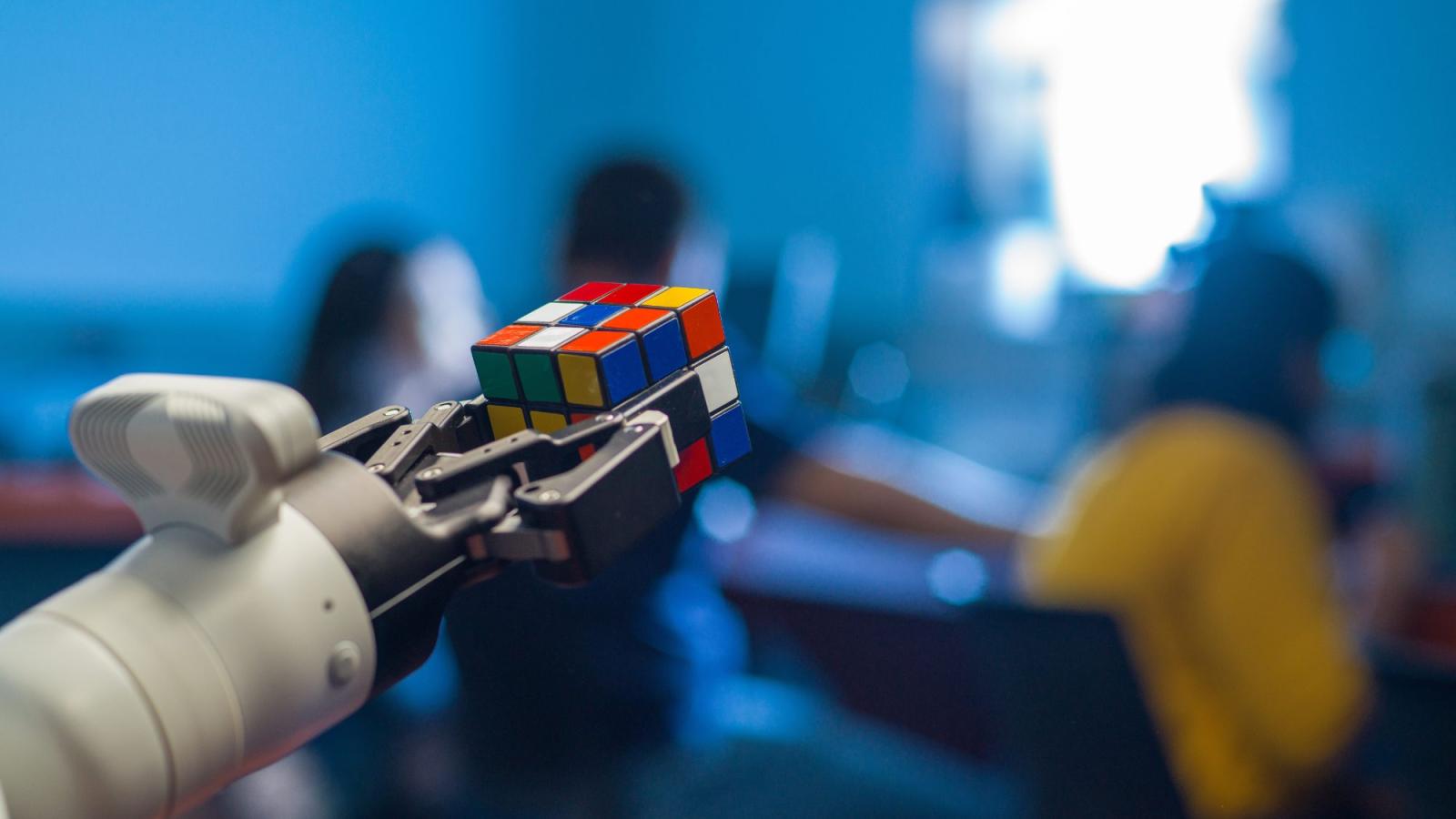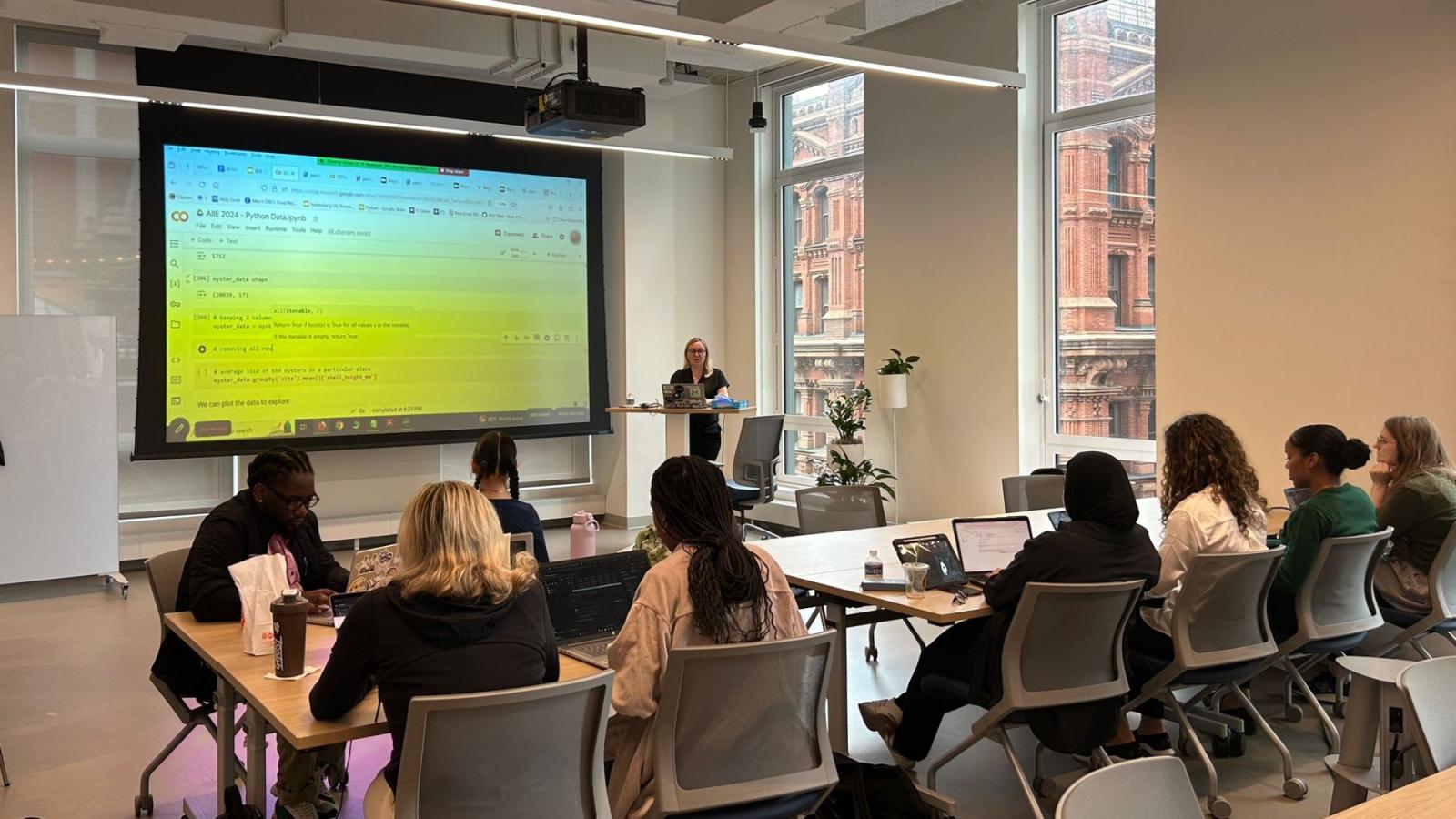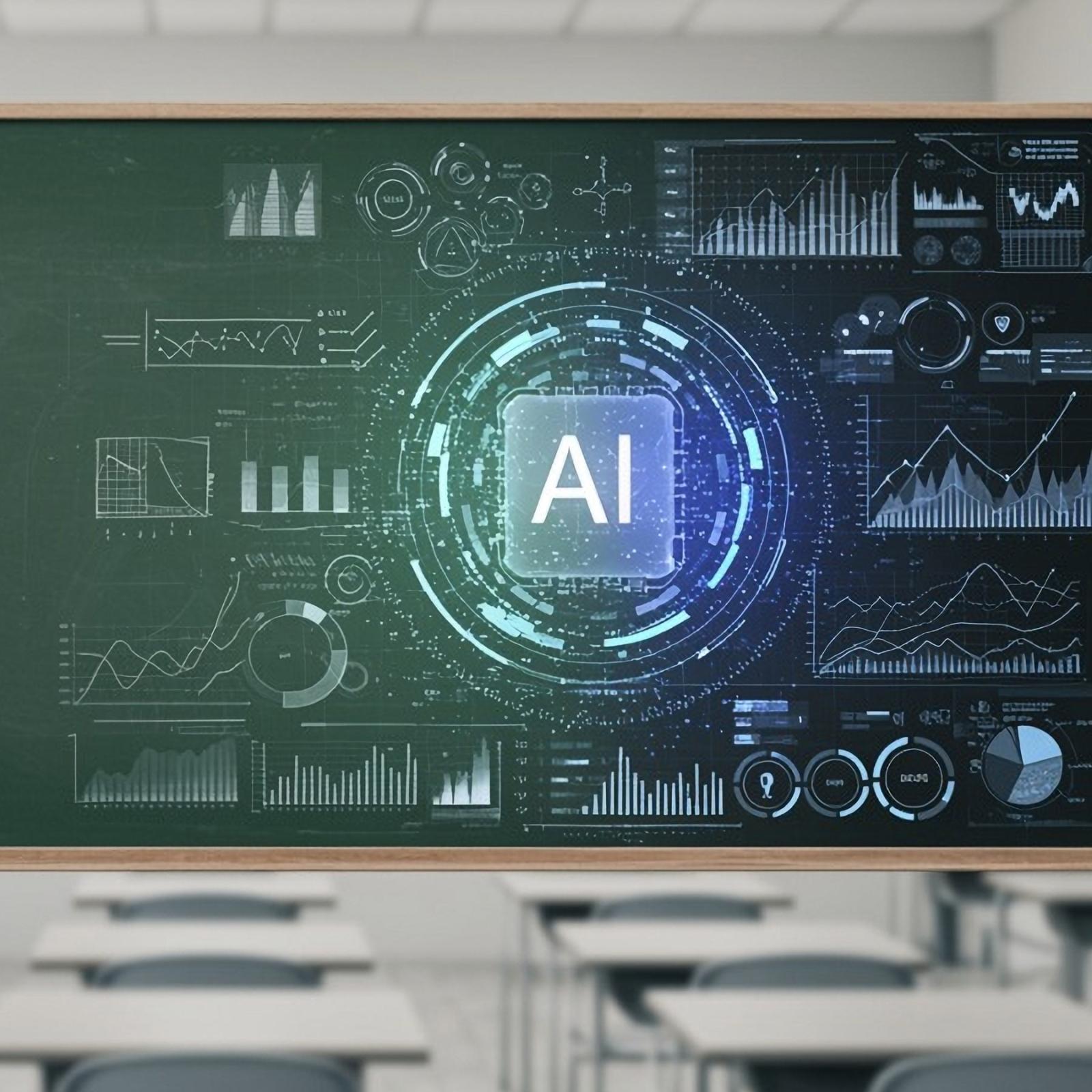A powerhouse in the field of AI, Sharff’s work has earned her numerous grants, and her research spans topics like Senegalese fashion, software engineering, ChatGPT in the classroom, and more.

Artificial Intelligence Programs
AI is the Future. Pace Is Already There.
The AI revolution is here, and Pace University is at the forefront. We not only prepare students to thrive in a tech-powered future; we equip them with tools and ethical frameworks to make a positive impact. With our high-tech facilities and innovative faculty research, Pace students are poised to become the next generation of leaders, innovators, and changemakers in an AI-driven workforce.
At Pace, we're not just embracing the future—we're helping shape it.
prepare students to lead in AI careers
incorporate AI at the undergraduate and graduate level
teach and research in the field of AI

AI Curriculum for an AI-Driven Workforce
Every Pace student can start learning AI through the first-year class CIS 101, which introduces the fundamentals of AI and ethical use. Pace offers over 40 AI-related courses, instilling our students with the confidence and skills needed to navigate an increasingly AI-powered world.
Artificial Intelligence Degrees at Pace
Cultivate expertise in machine learning and data science as you work with faculty mentors to turn real-world experience into technical mastery.
Build the tech of tomorrow as you learn natural language processing, build large language models (LLMs), and engage in faculty-led research at the Pace AI Lab.
Design, build, and launch AI solutions that make real-world impact while mastering machine learning, data analysis, and human-centered innovation.
Ai in Action
AI is more than a concept—it’s woven throughout every level of our curriculum. Students apply emerging technologies across industries, from fashion and healthcare to national security and entrepreneurship. With a strong foundation in computer science and a growing emphasis on AI, cybersecurity, and data science, Pace students graduate ready to lead in the next wave of innovation.

AI in the Workplace
We understand the importance of equipping our entire community, not just our students, with an understanding of AI. The AI in the Workplace course equips Pace students, faculty, staff, and alumni with hands-on experience in leading AI tools, practical applications, and ethical best practices. By the end of the course, participants will feel equipped with the tools, insight, and mindset to use AI with purpose. Since Summer 2024, more than 1,000 Pace students, staff, faculty, and alumni have been enrolled in the course.


AI Is Here. Now What?
Explore this question and many more in this one-of-a-kind deep dive publication featuring insights from Pace University’s experts. From ethics and academic integrity, to innovation in healthcare and research, this publication offers articles, podcasts, and polls to explore questions of AI.
Artificial Intelligence Courses from World-Class Faculty
Among our faculty are many AI experts and enthusiasts engaged in cutting-edge research and seeking grants in the field. They're bringing their knowledge into the classroom and collaborating with students and colleagues to explore innovative applications of AI.
Drawing on her expertise in machine learning, Shan is exploring the intersection of AI and healthcare, focusing on analyzing medical imaging for more accurate diagnoses.
A philosophy professor and author at Dyson College of Arts and Sciences, Brusseau is leading the conversation about ethical AI, developing workshops and publishing many papers on the topic.

Education in the Age of AI
What does it mean to learn in an AI-driven world? Pace University staff, faculty, and leadership weigh in on the concerns, challenges, and opportunities that AI presents for students, both during their education and within future careers.
From AI ethics and governance to social media, from pedagogy to healthcare. Our faculty, often in collaboration with students, are at the forefront of AI-related research. Together, they’re asking big questions and exploring innovative solutions, paving the way for a brighter future through the ethical application of AI.

Study of AI and Mental Health in the Context of Social Media
Professor Yegin Genc, PhD, and PhD student Xing Chen’s explore the utilization of AI in clinical psychology, focusing on social media's influence on mental health. Their findings highlight the underutilization of social media in mental health care, limited collaboration between research communities, and the need for a more human-centric approach.

Automatic Speech-Based Diagnosis of Cluttering
D. Paul Benjamin, PhD, and PhD student Gunjan Asrani explored the diagnosis of cluttering, a fluency disorder that is often misdiagnosed. Their research utilized machine learning techniques to analyze features of patients’ speech to explore more accurate diagnostic criteria.

A Prototype for Monitoring Ethical Behavior of Artificial Intelligence Systems
Pedro Vasseur, building on past study of data violations, developed a prototype designed to monitor decisions of AI systems based upon ethical frameworks, detecting violations of set ethical rules while working independently of the AI system.

AI Lab at Pace
The AI lab—housed in the brand new, cutting-edge building at 15 Beekman in NYC—is the central AI hub for the Pace Community, offering training and opportunities to learn, grow, and collaborate for students, faculty, and staff. In addition, the AI lab extends its training initiatives to local businesses and community members, leveraging Pace's extensive expertise in AI research and development, which spans over 30 years.
Critical Thinking About Generative AI
AI innovation and education must begin critical thinking and ethical frameworks. Pace scholars take a critical look at impact of generative AI, posing questions about what we stand to gain or lose from AI, how we shape AI use, and the role of human ingenuity.



